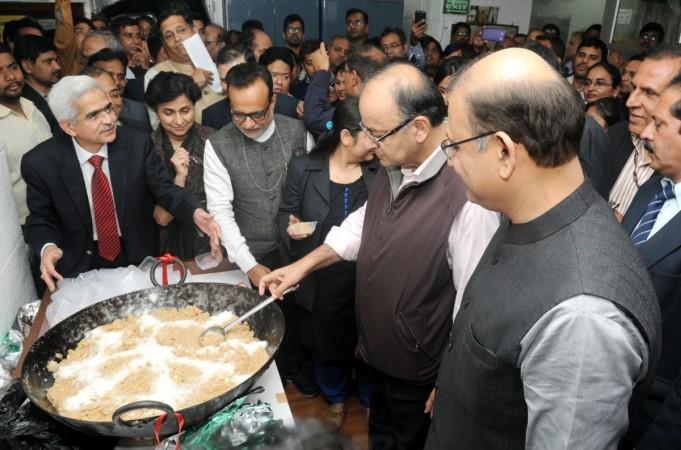
If one were to presume that the Supreme Court will strike down the plea for postponing the presentation of Budget 2017 on February 1 in view of the upcoming polls, the printing of the document could commence as early as this weekend.
Read: FM Arun Jaitley provides insights on income tax collection in India
Going by the usual schedule, the printing of budget documents commences about 10 days before the presentation by the finance minister in Parliament. Last year, it commenced with the traditional halwa ceremony on February 19 and Jaitley presented the budget on February 29.
Using a similar logic, the halwa ceremony for this year could be held around January 22/23 (Saturday/Sunday) for being tabled in the Parliament on February 1. It will be the penultimate full-fledged budget to be presented by the Modi government.
The next budget will also be a full-year document but the one to be presented in 2019 will be vote-on-account in view of the next general elections due in the year.
Meanwhile, speculations are rife on what would be the changes with respect to corporate tax and and personal income tax rates. Besides, there are expectations whether will there will be tax on long-term capital gains (LTCGs) or tweaking of the holding period for capital assets.
Currently, equity shares of listed entities held for more than 12 months is treated as long-term capital asset and gains arising from sale of such shares are exempt from tax.
A few days ago, there was speculation after Modi's speech at Pune last month that the government was mulling changes in LTCGs, though Jaitley was quick to deny it.
Inaugurating the NISM campus near Mumbai last month, Modi had said, "...those who profit from financial markets must make a fair contribution to nation-building through taxes. For various reasons, the contribution of tax from those who make money on the markets has been low."
In financial year 2013-14 (assessment year 2014-15), the government had realised Rs 64,521 crore by way of tax on LTCGs. The details for the next years are not available.
Capital assets include shares, debentures, jewellery, paintings, archaeological collections, works of art, among other things.
LTCGs on sale of equity shares or units of equity linked mutual funds are exempt under section 10 (38) of the Income Tax Act, subject to the following conditions:
- The transaction i.e. the transaction of sale of equity shares or units of an equity oriented mutual fund or units of business trust should be liable to securities transaction tax.
- Such shares/units should be long-term capital asset.
- Transfer should have taken place on or after October 1, 2004. [As amended by Finance Act, 2016] (*) Equity oriented mutual fund means a mutual fund specified under section 10(23D) and 65% of its investible funds out of total proceeds are invested in equity shares of a domestic company.
LTCGs are subject to tax at the rate of 20 percent (plus surcharge and cess as applicable), but in certain special cases, the gain may be (at the option of the taxpayer) charged to tax at the rate of 10 percent (plus surcharge and cess as applicable), according to an explainer issued by the income tax department.
"The benefit of charging [As amended by Finance Act, 2016] long-term capital gain @ 10% is available only in respect of long-term capital gains arising on transfer of any of the following asset: (a) Any security (*) which is listed in a recognised stock exchange in India; (b) Any unit of UTI or mutual fund (whether listed or not) ($); and (c) Zero coupon bonds," the document said.








